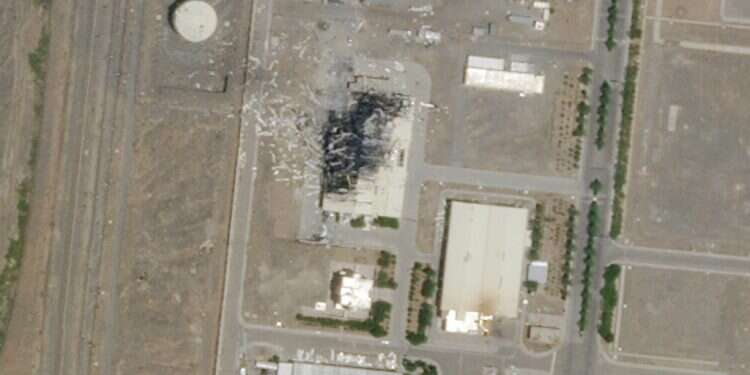Iran on Saturday downplayed reports of a large blast near the Natanz nuclear facility in the Isfahan Province, saying it was the result of an unannounced air defense drill during which a missile was fired over the area housing the sensitive uranium enrichment site.
Follow Israel Hayom on Facebook and Twitter
The Natanz nuclear facility is a major part of Iran's nuclear program. With over 19,000 centrifuges currently operational, it is considered Iran's main uranium enrichment site and as such, it has been the target of several attempts to hamper its operations, mostly via cyberattacks. The most famous of the latter is the 2010 Stuxnet strike that severely crippled the facility, and it has also been plagued by a series of mysterious explosions, fires, and electrical problems, some of which the foreign press has attributed to Israel.
Earlier on Saturday, Iranian news agencies reported a large explosion in the sky above Natanz, but said there was no official explanation of the incident.
Shortly afterward, army spokesman Shahin Taqikhani issued a statement saying that air defense units fired the missile to test a rapid reaction force over Natanz.
"Such exercises are carried out in a completely secure environment ... and there is no cause for concern," he said.
Meanwhile, US Secretary of State Antony Blinken said that the latest round of Iran nuclear talks has broken down because Iran right now does not seem to be serious about doing what is necessary to return to compliance with a 2015 deal.
Blinken warned that the United States would not let Iran drag out the process while continuing to advance its program and that Washington will "pursue other options" if diplomacy fails.
The Islamic republic has walked back any compromises it made in previous talks on reviving the 2015 nuclear deal, pocketed all compromises made by others and asked for more during indirect US-Iranian talks this week, another senior State Department official said on Saturday.
Iran continues to accelerate its nuclear program in provocative ways and China and Russia were taken aback at how far Iran had walked back its proposals in last week's talks in Vienna, the official told reporters.
The indirect US-Iranian talks on saving the 2015 Iran nuclear deal broke off on Friday as European officials voiced dismay on at sweeping demands by Iran's new, hardline government.
The seventh round of talks in Vienna is the first with delegates sent by Iran's anti-Western President Ebrahim Raisi on how to resuscitate the agreement under which Iran limited its nuclear program in return for relief from economic sanctions.
Iran came "with proposals that walked back anything - any of the compromises Iran had floated here in the six rounds of talks, pocket all of the compromises that others, and the US in particular, had made, and then asked for more," the senior US official said.
It is currently unknown when the next round of talks would resume, especially given the ambiguity as to whether Iran is willing to negotiate seriously, he said.
Subscribe to Israel Hayom's daily newsletter and never miss our top stories!




